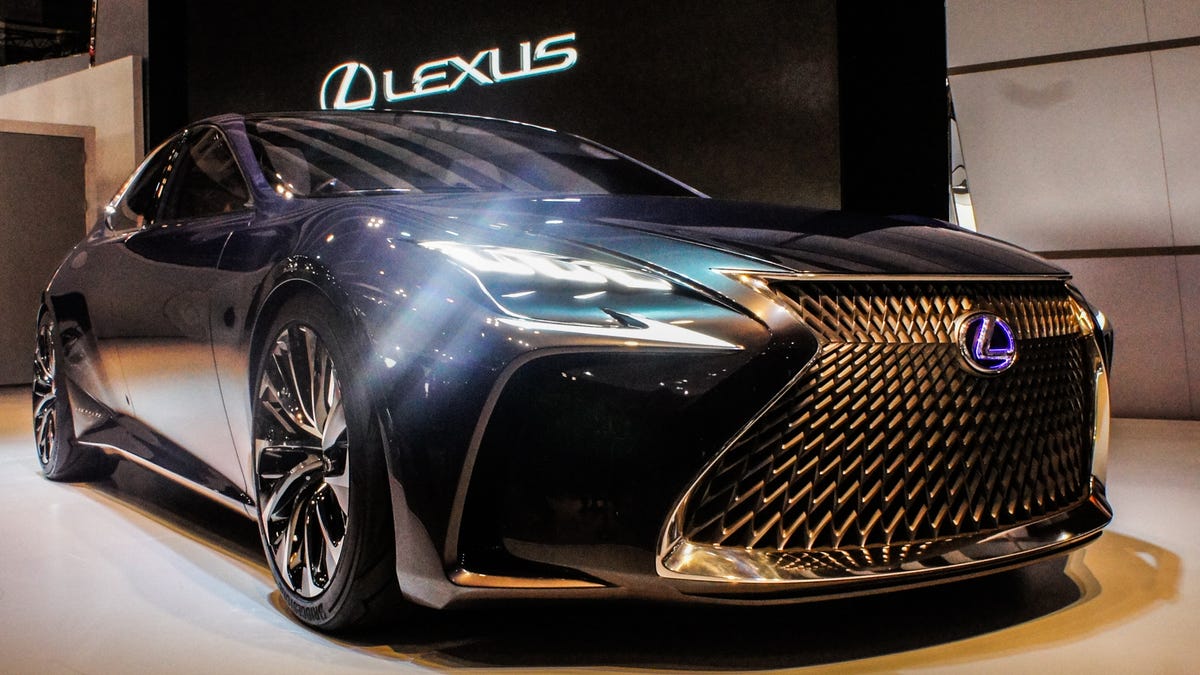High-tech Lexus LF-FC luxury concept runs on hydrogen, contains a hologram
Lexus' LF-FC concept is a clear indication of a new generation for the LS model, although hydrogen power is debatable. We took a look at the Tokyo Motor Show.

TOKYO -- Lexus' LS model has been a stalwart in the luxury sedan segment, but the current model is showing its age. At the 2015 Tokyo Motor Show, Lexus unveiled the LF-FC, a strong suggestion of what the next generation LS will look like.
High-tech features such as a hydrogen fuel cell drivetrain and a gesture-controlled electronics system with a hologram guide probably won't be ready for production, however.
The LF-FC is an impressively large sedan with LED headlights, Lexus' signature spindle grille and a curving body and cabin structure. Those design elements are not quite in harmony with Lexus' sharp-edged crossovers, such as the RX 450h . Still, the LF-FC has the grand and graceful appearance fitting a flagship sedan.
Lexus, possibly inspired by brand-owner Toyota's recent hydrogen predilections, specifies a drivetrain consisting of one rear electric motor and two in-wheel front electric motors. Those motors would get electricity from a fuel cell stack and onboard hydrogen tanks, similar to the system in the Toyota Mirai .
Given the LF-FC's fuel cell drivetrain, the large spindle grille seems more ornamental than practical.
With three drive motors, the LF-FC would benefit from all-wheel-drive, which could be used to fine-tune stability and traction control. Lexus also notes the wheels use carbon-fiber reinforced plastic components, presumably to lighten the car.
Photos of the interior released by Lexus show plush seats with a business-class look. Electronics in the dashboard would be controlled by gestures, according to Lexus, with a hologram on the console guiding passengers.
Lexus certainly needs a new generation for the LS model, and the body design of the LF-FC looks like something that could appear as a production model next year. LED headlights are certainly practical, but the fuel cell drivetrain likely won't be ready for prime time, mostly due to the lack of infrastructure support.

